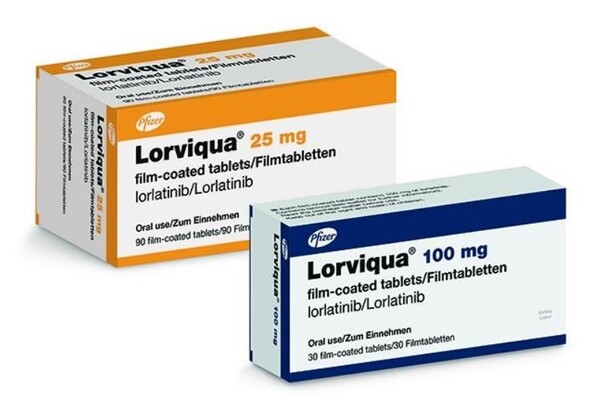Pfizer Korea’s attempts to expand reimbursement for its third-generation ALK inhibitor Lorviqua (lorlatinib) do not seem to bear fruit easily, according to industry sources.
Some analysts have speculated that Pfizer Korea might have made a strategic choice in the drug price negotiations due to Lorviqua's obvious limitations as a latecomer and the government’s pressure to accept its evaluation price.

Lorviqua, a cancer medicine to treat ALK positive non-small cell lung cancer (NSCLC), faces the deadline for drug price negotiations with the National Health Insurance Service (NHIS).
However, the drug was not included in the “Amendments to the Notification for Drugs Prescribed and Administered to Cancer Patients” announced recently by the Health Insurance Review and Assessment Service (HIRA), adding to the speculation that the negotiations were unsuccessful. Lorviqua passed the Pharmaceutical Reimbursements Evaluation Committee on Jan. 11 and entered into price bargaining with the NHIS – on the condition that the company would accept a price below what the government offers.
However, it is reported that Pfizer Korea feels considerable pressure with the government-assessed price.
Based on the treatment costs of Roche's Alecensa (alectinib) and Takeda's Alunbrig (brigatinib), which are already used as first-line drugs, market insiders said they could predict the government's proposed price reduction for Lorviqua.
The recommended daily dose of Alecensa is estimated to cost around 125,000 won ($93), while Alunbrig costs around 100,000 won. In comparison, the current cost of Lorviqua, a second-line drug, is around 158,000 won per day.
Moreover, even if Pfizer Korea accepts the government's price reduction and includes Lorviqua as a first-line drug, healthcare providers are unlikely to choose it for first-line treatment.
This is because if Lorviqua is used in first-line treatment, chemotherapy is the only treatment option if treatment fails. The lack of follow-up treatment is the most problematic limitation of Lorviqua as a latecomer.
Owing to the development of targeted therapies, ALK-positive NSCLC can be treated for many years, even if the patient is diagnosed at stage IV. Therefore, treatment aims to prolong survival as long as possible while maintaining the patient's quality of life.
The current first-generation drugs of Alecensa and Alunbrig have completed the generational transition by overcoming treatment resistance and demonstrating efficacy in the central nervous system compared to the first-generation Xalkori (crizotinib). Patients who have failed these second-generation drugs can use Lorviqua in second-line therapy to maintain targeted therapy.
Against this backdrop, there is no need to choose Lorviqua without follow-up treatment options first, except in special situations.
Still, thanks to Lorviqua's superior efficacy in the central nervous system, experts advise that it could be the first choice for patients with advanced brain metastases at diagnosis.
Besides, as Alecensa, a second-generation drug, has recently been expanding its use as a “postoperative adjuvant therapy” in early-stage lung cancer patients who can be operated on, Lorviqua can be used as a first-line treatment for advanced or metastatic patients who have failed such treatment, according to experts.
However, Alecensa is not yet available in Korea as an adjunctive postoperative therapy. As Roche Korea expects to expand Alecensa's indications by the end of this year, there seems to be no urgency to expand Lorviqua’s coverage in first-line treatment, they said.
Other watchers said there is no need for Pfizer Korea to take a drastic price cut to enter the first-line treatment competition, speculating that Pfizer Korea has chosen a strategic detour in the drug price negotiation.

